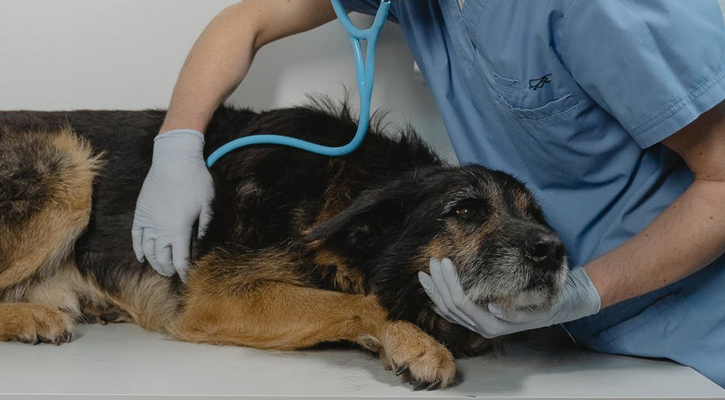Step-by-Step Guide When Your Pets Are Sick
When your beloved pet falls ill, it can be a stressful and challenging time for any pet owner.
Knowing the right steps to take can make a significant difference
in ensuring your furry friend receives the care they need.
This step-by-step guide provides a comprehensive approach to recognizing symptoms,
seeking veterinary assistance, administering treatment, and providing aftercare,
helping you navigate the situation with confidence and ease.

Recognizing Signs of Illness
The first step is identifying if your pet is actually sick. Here are some common signs to watch out for:
- Is your pet eating less or not eating at all?
- Is your pet more tired or sluggish than usual?
- Is your pet hiding, whining more than usual, or displaying other changes in behavior?
- These can include fever, coughing, sneezing, difficulty breathing, or unusual discharge from the eyes or nose.
Initial Care at Home
If you suspect your pet is sick, here’s what you can do at home:
- Keep an eye on your pet’s behavior and any changes in their condition.
- Withhold food for a short time can be helpful for some illnesses, especially those involving vomiting. Consult your vet for specific instructions.
- Ensure your pet has access to clean, fresh water at all times.
- Create a quiet, warm spot where your pet can rest undisturbed.
- Avoid overenergy-used exercise or playtime while your pet is unwell.
Contacting Your Veterinarian
It’s crucial to contact your veterinarian whenever you suspect your pet is sick, especially if they exhibit any of the following:
- Severe vomiting or diarrhea
- Difficulty breathing
- Fever
- Unusual pain or discomfort
- Any other symptoms that concern you
Explain the symptoms you’ve observed and answer any questions the vet
may have about your pet’s recent activities or diet.

Preparing for Your Vet Visit
Here’s how to prepare for a smooth vet visit:
- Gather medical history which includes vaccination records, past illnesses, and any medications your pet is currently taking.
- Note down the time and duration of any concerning behaviors or symptoms.
- Bring a stool sample (if requested) can be helpful in diagnosing certain digestive issues.
- Choose a carrier (for smaller pets) will keep your pet calm and secure during transport.
Following Veterinarian’s Instructions
Once you’ve seen the vet, follow their instructions carefully. This may include:
- Administer any prescribed medications as directed.
- Adjust your pet’s diet according to the vet’s recommendations.
- Schedule any follow-up appointments to monitor your pet’s progress.
Caring for Your Sick Pet at Home
Providing extra care at home will help your pet recover faster.
- Reduce stress by minimizing noise and unfamiliar people.
- Show your pet affection and reassurance.
- Keep an eye on their symptoms and their overall well-being.
your attentiveness and prompt response play a crucial role in their health journey.
With patience, love, and the right approach, you can help your pet
overcome their illness and return to their happy, healthy self.
Read more
Pet Transport from Can Tho, Vietnam to Osaka, Japan
Pet Transport from Caloocan, Philippines to Vietnam
Transporting pets around the world with Indochinapost













